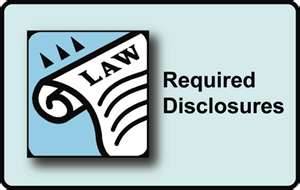 This debtor in South Florida recently lost his free and clear car in bankruptcy (actually the debtor was allowed to pay for the one-half interest in a Chapter 13 so it wasn’t quite as bad as it initially appears). Joint ownership is getting murkier and legal advise is definitely needed to preserve vehicles, money in bank accounts and even real property. Other bankruptcy cases in South Florida have recently attacked the “bare legal title” concept. These situations often arise when debtors share bank accounts, vehicles or even real property with parents, children or other relatives. Generally, we can show that the debtor held bare legal title only for probate or other purposes and the property is not subject to turnover by the bankruptcy court. However, the law in this area is getting rather murky. The facts in this case were as follows: a vehicle purchased by a debtor’s mother, but titled in the name of the debtor and his mother, and the debtor paid the insurance and maintenance. In re Fletcher, 2012 WL 2062394 (Bankr. S.D. Fla., March 6, 2012).
This debtor in South Florida recently lost his free and clear car in bankruptcy (actually the debtor was allowed to pay for the one-half interest in a Chapter 13 so it wasn’t quite as bad as it initially appears). Joint ownership is getting murkier and legal advise is definitely needed to preserve vehicles, money in bank accounts and even real property. Other bankruptcy cases in South Florida have recently attacked the “bare legal title” concept. These situations often arise when debtors share bank accounts, vehicles or even real property with parents, children or other relatives. Generally, we can show that the debtor held bare legal title only for probate or other purposes and the property is not subject to turnover by the bankruptcy court. However, the law in this area is getting rather murky. The facts in this case were as follows: a vehicle purchased by a debtor’s mother, but titled in the name of the debtor and his mother, and the debtor paid the insurance and maintenance. In re Fletcher, 2012 WL 2062394 (Bankr. S.D. Fla., March 6, 2012).
Under Florida law, when a person’s name appears on title to property, a rebuttable presumption arises in bankruptcy that the person has a beneficial interest in the property, although that interest may be an equal interest or a factional share. The burden then shifts to the debtor to prove by competent, clear, and compelling evidence she does not hold a beneficial interest in the property. In re Kirk, 381 B.R. 800 (Bankr. M.D. Fla. 2007).
Thus, here, although the debtor’s mother supplied the funds to purchase a motor vehicle, the debtor held a beneficial interest in the vehicle, and the vehicle was subject to turnover to the Chapter 7 trustee, where the vehicle was titled in the name of the debtor and the debtor’s mother, and the debtor paid for the insurance on, and the maintenance of, the vehicle.
 There are several exciting things happening in mortgage modifications lately. The modification puzzle pieces seem to be falling into place, albeit four years after the foreclosure crisis began. We hope to take full advantage of this and get as many of our clients through a mediation this fall as possible.
There are several exciting things happening in mortgage modifications lately. The modification puzzle pieces seem to be falling into place, albeit four years after the foreclosure crisis began. We hope to take full advantage of this and get as many of our clients through a mediation this fall as possible. Reboot Your Life: Tampa Student Loan and Bankruptcy Attorney Blog
Reboot Your Life: Tampa Student Loan and Bankruptcy Attorney Blog


 It will take less time than you think to qualify to buy a home after bankruptcy. I generally advise my Florida clients that they will likely qualify within 2-5 years.
It will take less time than you think to qualify to buy a home after bankruptcy. I generally advise my Florida clients that they will likely qualify within 2-5 years. In Florida, typically someone who is sued is served with the lawsuit and given 20 or sometimes 30 days to file a response. If the lawsuit was filed in small claims court, you are given a date to appear at a pretrial conference instead of filing a written response.
In Florida, typically someone who is sued is served with the lawsuit and given 20 or sometimes 30 days to file a response. If the lawsuit was filed in small claims court, you are given a date to appear at a pretrial conference instead of filing a written response. Do this to Stop Calls to your Cell Phone.
Do this to Stop Calls to your Cell Phone. In a strong opinion favoring Florida homeowners, the Eleventh Circuit slammed the door in the face of debt collectors and mortgage servicers in foreclosure cases making it abundantly clear that calling homeowners multiple times in one day after they have hired an attorney to represent them, using abusive and offensive language and lying about foreclosure sale dates and other unscrupulous behavior would no longer be tolerated. In
In a strong opinion favoring Florida homeowners, the Eleventh Circuit slammed the door in the face of debt collectors and mortgage servicers in foreclosure cases making it abundantly clear that calling homeowners multiple times in one day after they have hired an attorney to represent them, using abusive and offensive language and lying about foreclosure sale dates and other unscrupulous behavior would no longer be tolerated. In  Too late for many, but at least a step in the right direction, Senator Al Franken (D-Minn) introduced the
Too late for many, but at least a step in the right direction, Senator Al Franken (D-Minn) introduced the  Last month, it was well publicized that student loan interest rates were about to double unless Congress acted. Actually, this only involved subsidized Stafford loan interest rates. However, President Obama made the most of it and traveled around the country garnering support to help students. At the last minute, Congress voted to stop the increase.
Last month, it was well publicized that student loan interest rates were about to double unless Congress acted. Actually, this only involved subsidized Stafford loan interest rates. However, President Obama made the most of it and traveled around the country garnering support to help students. At the last minute, Congress voted to stop the increase.  This debtor in South Florida recently lost his free and clear car in bankruptcy (actually the debtor was allowed to pay for the one-half interest in a Chapter 13 so it wasn’t quite as bad as it initially appears). Joint ownership is getting murkier and legal advise is definitely needed to preserve vehicles, money in bank accounts and even real property. Other bankruptcy cases in South Florida have recently attacked the “bare legal title” concept. These situations often arise when debtors share bank accounts, vehicles or even real property with parents, children or other relatives. Generally, we can show that the debtor held bare legal title only for probate or other purposes and the property is not subject to turnover by the bankruptcy court. However, the law in this area is getting rather murky. The facts in this case were as follows: a vehicle purchased by a debtor’s mother, but titled in the name of the debtor and his mother, and the debtor paid the insurance and maintenance. In re Fletcher, 2012 WL 2062394 (Bankr. S.D. Fla., March 6, 2012).
This debtor in South Florida recently lost his free and clear car in bankruptcy (actually the debtor was allowed to pay for the one-half interest in a Chapter 13 so it wasn’t quite as bad as it initially appears). Joint ownership is getting murkier and legal advise is definitely needed to preserve vehicles, money in bank accounts and even real property. Other bankruptcy cases in South Florida have recently attacked the “bare legal title” concept. These situations often arise when debtors share bank accounts, vehicles or even real property with parents, children or other relatives. Generally, we can show that the debtor held bare legal title only for probate or other purposes and the property is not subject to turnover by the bankruptcy court. However, the law in this area is getting rather murky. The facts in this case were as follows: a vehicle purchased by a debtor’s mother, but titled in the name of the debtor and his mother, and the debtor paid the insurance and maintenance. In re Fletcher, 2012 WL 2062394 (Bankr. S.D. Fla., March 6, 2012).